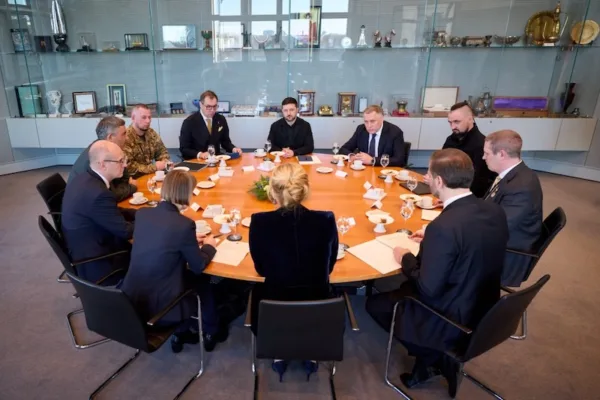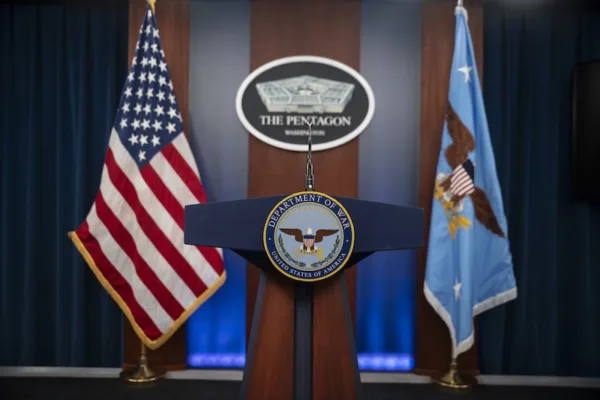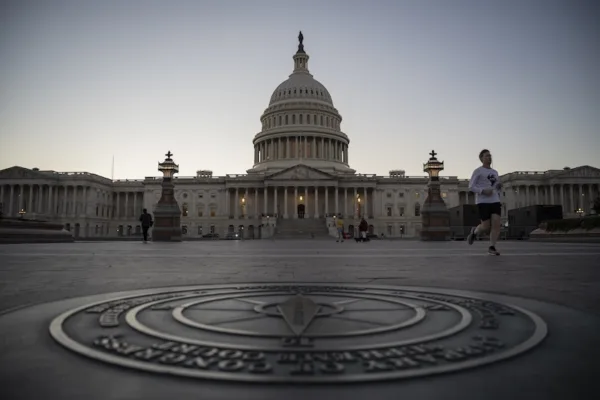US-Turkey Relations: Challenges and Opportunities ahead of the G20 Summit
Ahead of the Biden-Erdogan meeting during the G20 summit in Rome, the US-Turkey relationship remains complicated with ongoing tensions but also opportunities for cooperation. The two NATO allies’ differences over Syria and defense industry continue to be significant but there are also signs of improvement such as the most recent proposed F-16 deal, continued Turkish engagement in Afghanistan, and Turkish ratification of the Paris Climate Agreement. In their last meeting in Brussels, both presidents affirmed their willingness to rebuild the frayed ties. As the US is in the middle of a refocusing effort on the Indo-Pacific region, Turkey’s role in the Middle East will likely become more relevant for the Biden administration. What are some of the areas of potential cooperation? How can international forums like the G20 summit in Rome and climate summit in Glasgow deepen dialogue and produce breakthroughs on critical issues?
The SETA Foundation at Washington DC is pleased to host a panel of experts to discuss the US-Turkey relationship.
Speakers
The Honorable Robert Wexler, President, S. Daniel Abraham Center for Middle East Peace
Ambassador James Jeffrey, Chair of the Middle East Program, Distinguished Fellow, Wilson Center
Kilic Kanat, Research Director, The SETA Foundation at Washington, DC
Moderator
Kadir Ustun, Executive Director, The SETA Foundation at Washington, DC
Bios
The Honorable Robert Wexler is the President of the S. Daniel Abraham Center for Middle East Peace in Washington, D.C. He served as a Democratic Member of Congress from 1997 to 2010, representing Florida’s 19th district in the House of Representatives before retiring to lead the Center. Wexler was named one of the “50 Most Effective Legislators in Congress” by the influential magazine Congressional Quarterly and was named to the Forward 50 list as one of the most influential leaders in the American Jewish community. In 2008, Congressman Wexler served as an advisor on Middle East and Israel issues to President Barack Obama during his presidential campaign. In 2012, he served on the President’s reelection Steering Committee and addressed the Democratic National Convention outlining the President’s policies related to Israel. Born in New York, Congressman Wexler moved to South Florida with his family at age 10. He earned his B.A. in Political Science from the University of Florida and law degree from George Washington University. Before serving in Congress, he served in the Florida Senate for six years. Congressman Wexler and his wife, Laurie, have three children.
Ambassador James Jeffrey joined the Wilson Center in December 2020 as Chair of the Middle East Program. Ambassador Jeffrey served as the Secretary’s Special Representative for Syria Engagement and the Special Envoy to the Global Coalition To Defeat ISIS until November 8, 2020. He is a senior American diplomat with experience in political, security, and energy issues in the Middle East, Turkey, Germany, and the Balkans. He has held senior assignments in Washington, DC, and abroad, including as Deputy National Security Advisor (2007–2008); United States Ambassador to Iraq (2010–2012); United States Ambassador to Turkey (2008–2010); and United States Ambassador to Albania (2002–2004). In 2010 Jeffrey was appointed to the highest rank in the U.S. Foreign Service, Career Ambassador. From 1969 to 1976, Jeffrey was a U.S. Army infantry officer, with service in Germany and Vietnam.
Kilic Kanat is the Research Director at the SETA Foundation at Washington DC. He is an Assistant Professor of Political Science at Penn State University, Erie. Dr. Kanat received his PhD in Political Science from Syracuse University; a Master’s in Political Science from Syracuse University; a Master’s in International Affairs from Marquette University. He was awarded the Outstanding Research Award and Council of Fellows Faculty Research Award at Penn State, Erie. He participated in Future Leaders Program of Foreign Policy Initiative. Dr. Kanat’s writings have appeared in Foreign Policy, Insight Turkey, The Diplomat, Middle East Policy, Arab Studies Quarterly, Mediterranean Quarterly, Journal of South Asian and Middle Eastern Studies, Journal of Balkan and Near Eastern Studies, and Journal of Muslim Minority Affairs. He is a columnist at Daily Sabah. He is the author of A Tale of Four Augusts: Obama’s Syria Policy.
Kadir Ustun is Executive Director at the SETA Foundation at Washington, D.C. He holds a Ph.D. in Middle Eastern, South Asian, and African Studies from Columbia University and a master’s degree in History from Bilkent University. Dr. Ustun taught courses on history, politics, culture, and art in the Islamic World as well as Western political thought at Columbia University and George Mason University. His research interests include civil-military relations, social and military modernization in the Middle East, US-Turkey relations, and Turkish foreign policy. His writings have appeared in Insight Turkey, Al Jazeera English, Sabah Daily, Hurriyet Daily News, Cairo Review of Global Affairs, Al-Monitor, Politico, Daily Sabah, Mediterranean Quarterly, and Middle East Policy. He is co-editor of edited volumes History, Politics and Foreign Policy in Turkey (2011), Change and Adaptation in Turkish Foreign Policy (2014), and Trump’s Jerusalem Move: Making Sense of US Policy on the Israeli-Palestinian Conflict (2020).

















